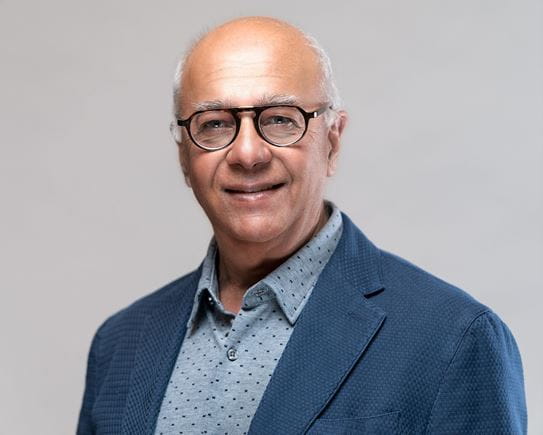
Funding from CCS and CIHR have led to a series of discoveries that could have powerful implications for the treatment of pancreatic cancer and other treatment-resistant solid tumours. Dr Shoukat Dedhar from the University of British Columbia and Dr Dan Renouf from BC Cancer co-led the CCS grant that helped to lay the foundation.
Pancreatic cancer is the 3rd leading cause of cancer death in Canada. Often diagnosed at a late stage, pancreatic cancer is very difficult to treat and only about 10% of people diagnosed survive for 5 or more years.
A tumour-specific enzyme called CAIX may be one reason that pancreatic cancer (and some other cancers) can be so hard to eradicate. CAIX has been found to contribute significantly to disease progression and poor patient outcomes. An acid-neutralizing enzyme produced by solid tumours, CAIX encourages tumours to grow and spread by helping cancer cells survive stress and shielding them from chemotherapy.
“Certain cancer cells depend on the CAIX enzyme to survive, and by inhibiting its activity, we can stop these cells from growing and spreading,” says Dr Dedhar.
With the help of a 2015 CCS Impact Grant, Dr Dedhar’s team tested a compound that blocks CAIX. Developed by Dr Dedhar and an international team of scientists, the team proved that the CAIX-blocking compound is effective at suppressing the growth and spread of pancreatic, breast and brain cancers. Now, it’s being evaluated in phase 1 clinical trials. But there’s a catch.
“While the compound has been successful at slowing the growth of tumours, they eventually come back,” says Dr Dedhar. “We needed to find out what else is allowing these cells to survive.”
To address this challenge, the team embarked on another study, this time led by a member of Dr Dedhar’s team, Dr Shawn Chafe, in collaboration with Dr Franco Vizeacoumar, another CCS-funded researcher.
Building on the earlier discovery, the team looked for other factors that help these cancer cells survive stress when CAIX is inhibited. Through this work, recently published in the journal Science Advances, they found a cluster of genes that help cancer cells regulate iron accumulation.
“When they blocked some of those genes together with CAIX, the cells accumulated toxic amounts of iron, and without the CAIX enzyme’s protective effects, the result was a massive death of the cancer cells,” says Dr Dedhar.
Research teams around the world are working to discover compounds capable of inducing iron accumulation in cancer cells. When such compounds are identified, Dr Dedhar hopes to combine them with his team’s CAIX-inhibiting compound to create more effective drug combinations that improve outcomes for many cancers.
“We think these drug combinations could have the potential to trigger sustained cell death and stop the growth and spread of pancreatic tumours and any other solid tumours capable of producing CAIX,” he says.
With funding from CCS donors, researchers like Dr Dedhar are making discoveries that are advancing progress against all types of cancer. This holiday season, you can fund some of Canada’s brightest researchers by purchasing a Gift of Discovery.
Help create a future without cancer
With support from readers like you, we can continue to make a meaningful impact for people affected by cancer.
We are determined to increase survival, stop cancer before it starts, and improve lives. But we can’t do it without you.
If everyone reading this gave just $5, we could achieve our goal this month to fund the most promising research, compassionate support and transformative advocacy. Please give today because every contribution counts. Thank you.
